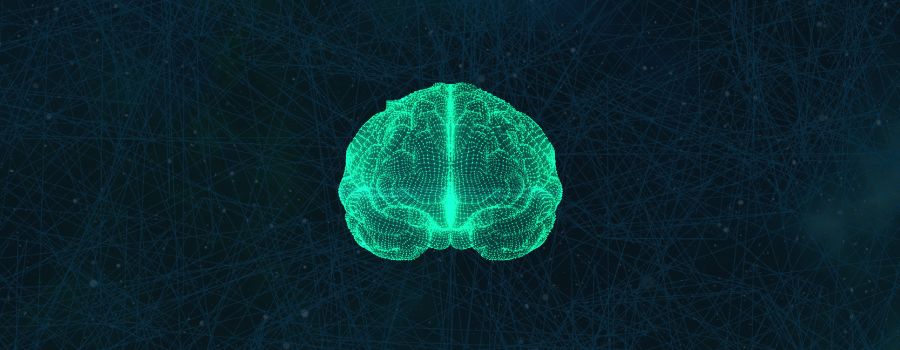It’s bizarre! That’s what you think when you hear words like neuroscience, right?
Let us talk more about it because something so interesting and engaging can actually be easier to understand than it seems. Neuroscience isn’t just for scientists in labs, it’s something we experience every day. From remembering where we left our phone to feeling excitement before a big event, our brain is constantly at work.
It’s the study of how our brain shapes our thoughts, emotions, and actions that’s as relevant to our daily lives as it is fascinating! In this article, we’ll explore how the brain works, how it shapes who we are, and some incredible facts. You don’t need a Ph.D. to appreciate how mind-blowing it all is.
The Brain: Your Body’s Supercomputer

Your brain is the center of your body, working like a supercomputer made of billions of nerve cells called neurons. These neurons communicate with each other through tiny electrical impulses and chemical signals, controlling breathing, heartbeat, emotions, and reasoning.
The average human brain contains around 86 billion neurons. That’s more than the number of stars in the Milky Way galaxy! Now, these neurons don’t work in isolation. They form networks, where one neuron might connect with thousands of others. This web of connections is how your brain processes information and reacts to the world.
Memories: More Than Just Storage

We often think of memory as a library where we store facts and experiences. But it’s way more dynamic! Our brain doesn’t store everything in one place. Instead, memories are scattered across different areas and pieced together when you need them.
- Memories are fragmented: Every part of a memory is stored in different regions—sights, smells, emotions
- Reconstruction in action: When you remember, your brain is essentially solving a puzzle!
- Memories can be biased: Ever argue with someone over how an event went down? That’s because our emotions influence what we remember.
Think back to a holiday trip. You probably remember the sights, but how about the way the air smelled or the food tasted? Different parts of your brain are responsible for those details!
Emotions: Why You Feel What You Feel

Ever wondered why your heart races when you’re scared or why you feel joy when you see a loved one? That’s your brain managing emotions like a master conductor. The limbic system, particularly the amygdala, is in charge of processing emotions—both good and bad.
- Fight or flight: When you’re scared or stressed, the amygdala kicks in, making your heart race and hands sweat.
- Dopamine hits: When you’re happy or enjoying something, your brain releases dopamine, making you feel good.
- Emotional memory: The brain doesn’t just store facts—it also stores how those moments felt!
Remember your last job interview? Sweaty palms, rapid heartbeat? That was your amygdala reacting to the stress. Now, think about the last time you hugged someone you love—that rush of joy? Dopamine at work!
The Brain’s Superpower

One of the most amazing things about the brain is its ability to change, adapt, and learn, which is called neuroplasticity. Your brain is not fixed! It’s always rewiring and adjusting based on new experiences, learning, and even healing.
- Learning rewires the brain: Every time you pick up a new skill, like cooking or playing an instrument, your brain forms new connections.
- Recovery after injury: If one part of your brain is damaged (like after a stroke), other areas can take over and compensate.
- The more you practice: The stronger the connections become. That’s why repetition is key!
Think about when you learned to ride a bike. It probably felt awkward at first, but after a few tries, your brain adjusted and created strong connections so you could do it effortlessly.
Sleep: Your Brain’s Cleaning Crew

Sleep is not just about rest, it’s like a cleaning service for your brain. While you’re off dreaming, your brain is actively clearing out toxins that build up during the day, helping you stay sharp and healthy.
- Memory consolidation: When you sleep, your brain organizes and strengthens the memories you make during the day.
- Clearing out toxins: The brain’s glymphatic system flushes out harmful substances, like a nightly deep clean.
- Lack of sleep: Ever feel foggy after a bad night’s sleep? That’s because your brain didn’t get enough time to clear out the clutter.
Ever notice how things seem clearer after a good night’s sleep? That’s your brain doing its “housekeeping,” and it’s why sleep is essential for feeling sharp and focused.
Everyday Neuroscience: Why It Matters

From emotional responses to learning new things, understanding how the brain works can help us appreciate and improve our mental well-being.
- Stress management: Understanding how your brain responds to stress can help you find better ways to cope (hello, deep breathing!).
- Boosting memory: Want to remember things better? Sleep and repetition are your best friends.
- Learning new skills: Whether it’s a new hobby or language, your brain’s plasticity makes it possible—practice strengthens those connections.
The Brain’s Endless Possibilities
Whether you’re recalling a memory, feeling an emotion, or learning something new, it’s your brain at work, adapting, and evolving. And while science can be complex, the way it plays out in our daily lives is something we all can relate to.
Next time you forget where you left your keys, feel a rush of excitement, or struggle with learning something new, just remember that you’re witnessing the wonders of neuroscience.
![]()

